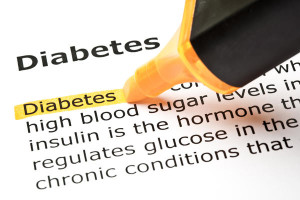FDA Issues Safety Communication about Invokana Side Effects
 The FDA recently issued a safety communication about Invokana side effects that have led to hospital visits for a number of users. On the heels of that warning, Invokana manufacturer Janssen Pharmaceuticals published a press release touting the benefits of their type 2 diabetes drug, with no mention of the FDA warning released just a few days prior.
The FDA recently issued a safety communication about Invokana side effects that have led to hospital visits for a number of users. On the heels of that warning, Invokana manufacturer Janssen Pharmaceuticals published a press release touting the benefits of their type 2 diabetes drug, with no mention of the FDA warning released just a few days prior.
The FDA announcement followed 20 adverse event reports that the agency received between March 2013 and June 2014. All of the reports involved a serious condition known as ketoacidosis, characterized by dangerously high levels of blood acids known as ketones. All of the patients of these adverse events required hospitalization to treat their condition.
The FDA also stated in their safety alert that they have received additional reports of ketoacidosis since June 2014. In around half of the reported cases, patients had potential factors that could have contributed to the onset of ketoacidosis, including acute illness, dehydration and reduced insulin doses. However, half of those reporting this condition did not had no contributing factors.
About Invokana
Invokana (canagliflozin) is a drug that falls into the category of type 2 diabetes drugs known as sodium-glucose cotransporter-2 (SGLT2) inhibitors. These drugs support the kidney’s elimination of sugar through urine, effectively lowering blood sugar levels in adults with type 2 diabetes. The drugs were praised as another tool in the arsenal for fighting stubborn cases of the condition. Other drugs in this category include Farxiga from AstraZeneca and Jardiance by Eli Lily and Boehringer Ingelheim.
However, concerns over the association between SGLT2 inhibitors and ketoacidosis have been growing. Ketoacidosis is a serious problem that is more commonly seen in patients with type 1 diabetes. Increased levels of ketones in the body can cause a number of severe and even life-threatening problems, including:
- Nausea
- Vomiting
- Abdominal pain
- Difficulty breathing
- Mental confusion
- Unusual, intense fatigue
If left unchecked, ketoacidosis can lead to diabetic coma and even death.
FDA communication
The FDA safety communication has warned the general public and the medical community that the agency is carefully monitoring side effects of SGLT2 inhibitors to determine whether changes need to be made in the prescribing protocol of the drug. In the meantime, the FDA encourages patients to report any unusual side effects after initiating the drug therapy to their doctors. The agency also urges medical providers and patients to report those side effects to the agency’s MedWatch program so the FDA can continue to monitor potential dangers associated with the drug.
Just days after the FDA warning, Janssen issued their press release citing recent analyses showing Invokana provided “significant improvements in blood glucose (A1C)” and “further improved A1C control” in patients taking Invokana in combination with other type 2 diabetes drugs. The press release made no mention of the FDA’s warning or the possible side effects associated with the drug.
Some patients who have been injured by SGLT2 inhibitors are considering filing Invokana, Jardiance and Farxiga lawsuits against the manufacturers of the medications. Lawyers for potential plaintiffs believe that the companies did not provide proper warnings about the side effects. Time will tell if the recent FDA safety communication will prompt other patients injured by the drug to take similar legal action.
- FDA, FDA Drug Safety Communication: FDA Warns that SGLT2 Inhibitors for Diabetes may Result in a Serious Condition of Too Much Acid in the Blood, http://www.fda.gov/Drugs/DrugSafety/ucm446845.htm
- Medscape, SGLT2 Inhibitor Diabetes Drugs May Cause Ketoacidosis: FDA, http://www.medscape.com/viewarticle/844754
- American Diabetes Association DKA (Ketoacidosis) and Ketones, http://www.diabetes.org/living-with-diabetes/complications/ketoacidosis-dka.html?referrer=https://www.google.com/

 Resources
Resources
 Resources
Resources
